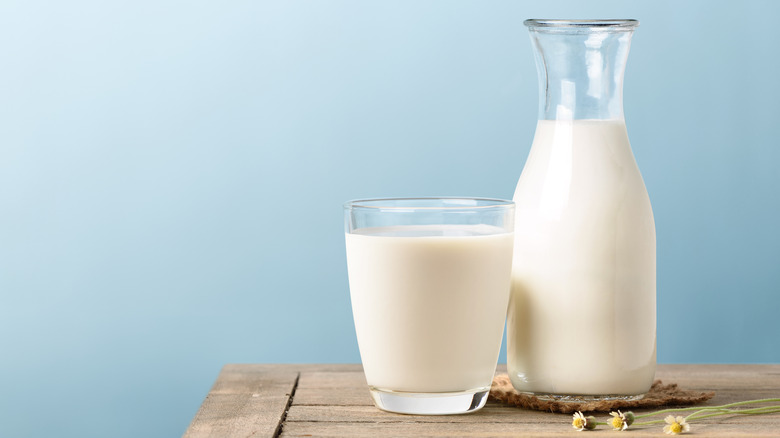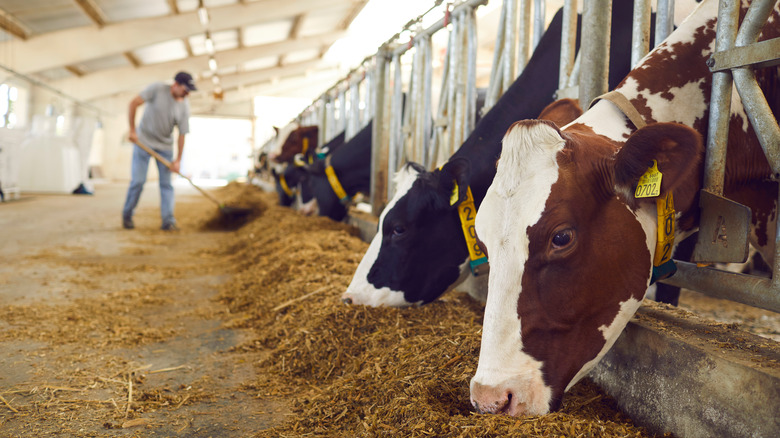This Could Change Your Mind About Dairy And Calcium
We have been hearing the slogan for years: "Milk, it does a body good." Dairy products are considered an essential food in the USA and even are considered their separate category in the USDA food pyramid as one of the five building blocks of basic nutrition, according to the USDA. We tell children they need to drink milk to build strong bones. But several new studies now question whether milk and other dairy products like yogurt, cheese, and butter are as healthy as we have been led to believe and whether they should be a necessary part of our diet.
Milk contains 300mg of calcium per eight-ounce serving, which makes up 30% of the daily recommended intake established by the USDA (per USDA). It also contains nearly 25% of the USDA recommended daily intake of Vitamin D (via Healthline), another important nutrient needed for bone health but notably deficient in 42% of Americans, according to the Cleveland Clinic. Because of these health benefits and an abundance of dairy farming in the United States that makes it easily accessible, milk has been considered a staple food since the early 20th century (via BBC). But all of that may be about to change.
Studies are questioning the health benefits of milk
According to a 2020 study published in the New England Medical Journal, while milk does contain high amounts of calcium, there is very little evidence that it strengthens bones in a meaningful way. Dr. Walter C. Willett, a professor at Harvard Medical School and co-author of the study told Medical News Today that "studies over the last several decades have not supported the need for such high intakes [of milk] for prevention of fractures, which has been the main justification, and some concerns about harm have been raised."
As it turns out, countries with the highest milk consumption often have the highest hip fracture rates (via MedicalNewsToday). While modest amounts of milk consumption are "compatible with good health," Dr. Willett also noted that "milk is not an essential part of a healthy diet."
Moreover, a 2019 study published by the Cambridge University Press found that conventional milk products sold in the USA often contain levels of antibiotics, hormones, and pesticides that exceed the federally acceptable limit, revealing that dairy products may be harming our health. These contaminants, however, were not found in the organic dairy products tested.
Is milk no longer a necessary part of the human diet?
There are many alternative sources of calcium and Vitamin D other than vitamin D-fortified milk (per US Dairy Council), that not only are good for you but do not harm the environment. As it so happens, dairy farming is a significant source of greenhouse gas emissions plus soaks up large amounts of government subsidies that could be used for more sustainable food production (via The Guardian).
Canada already has changed their food guidelines to exclude any recommendations for meat or dairy products, according to the BBC, and instead encourages Canadians to eat more fruits and vegetables. A 2020 review authored by professors from the Zuckerberg College of Public Health at Arizona State University asks the USA to follow suit and drop dairy from the USDA guidelines as a single recommended food group. They recommend that we place dairy with meat and other protein-rich foods within the category of "proteins," and stop including milk and other dairy foods as staples in government-run programs like school lunches.



